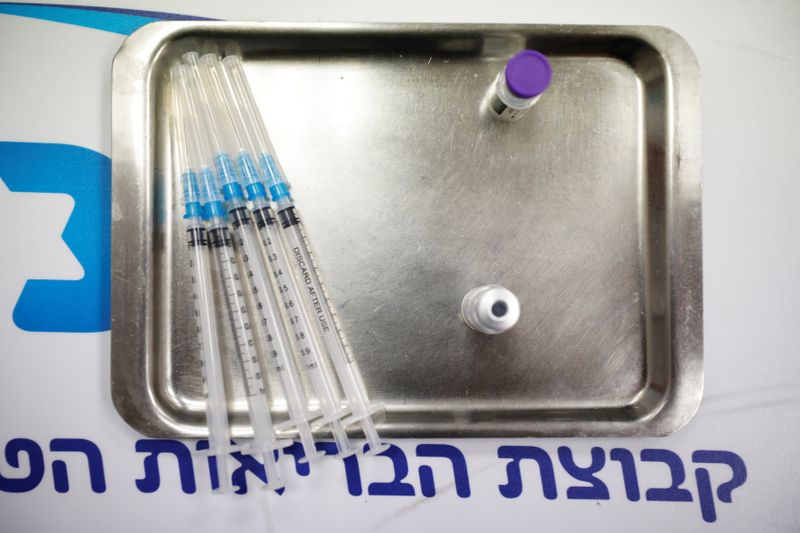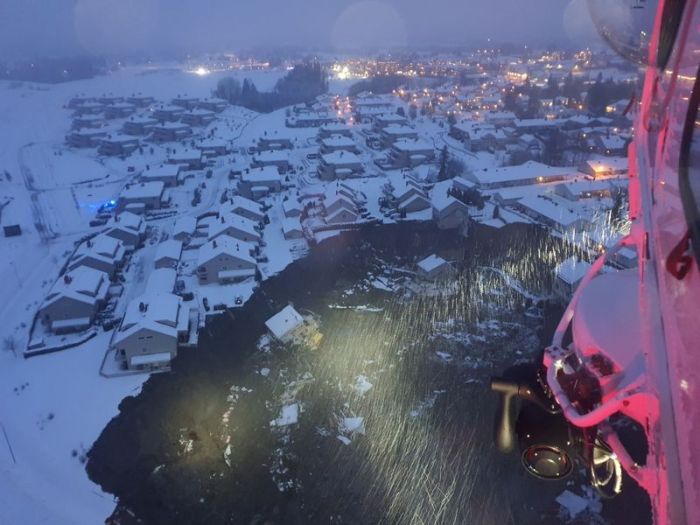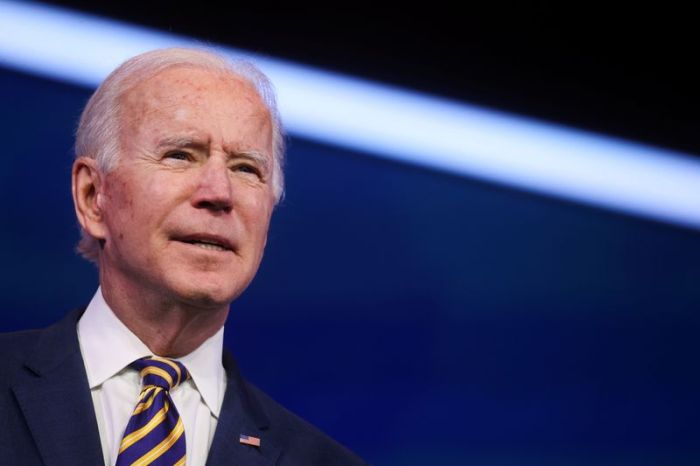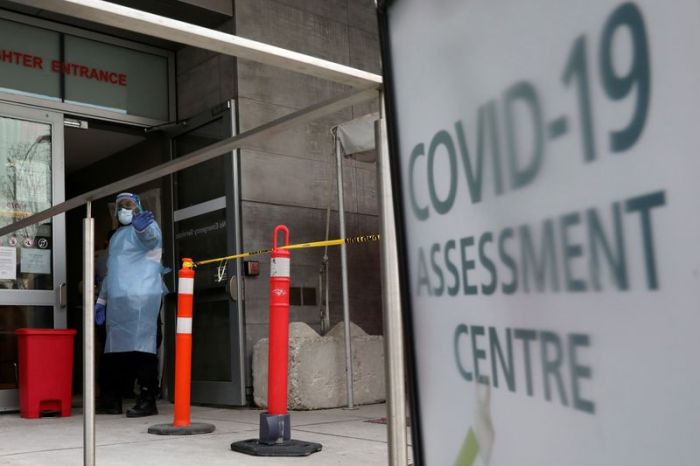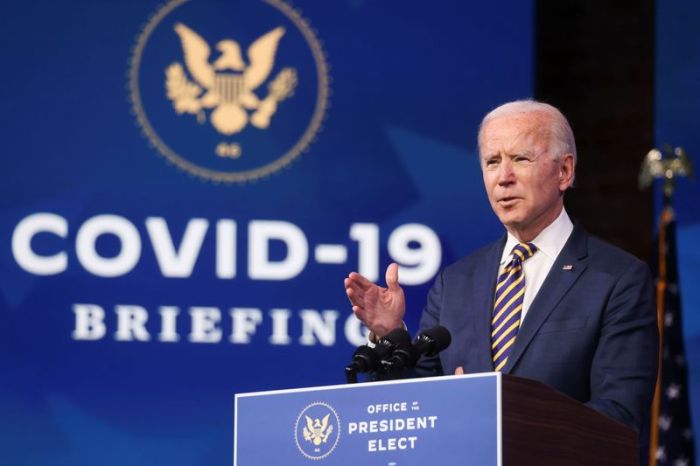(Reuters) -Here’s what you need to know about the coronavirus right now:
Fauci sees U.S. gaining control by next autumn
The leading U.S. infectious disease specialist, Dr. Anthony Fauci, said on Wednesday he foresees America achieving enough collective immunity through vaccinations to regain “some semblance of normality” by the autumn.
Fauci made his remarks during an online discussion of the pandemic with California Governor Gavin Newsom, who announced at the outset that a more infectious coronavirus variant originally found in Britain has been detected in his state, a day after the first known U.S. case was documented in Colorado.
Newsom said the coronavirus variant B.1.1.7 had been confirmed earlier in the day in a Southern California patient. The California Department of Public Health said that the person has no known travel history, suggesting the variant is spreading within the community.
China gives its first vaccine approval to Sinopharm
China approved its first COVID-19 vaccine for general public use on Thursday, a shot developed by an affiliate of state-backed pharmaceutical giant Sinopharm.
No detailed efficacy data of the vaccine has been publicly released but its developer, Beijing Biological Products Institute, a unit of Sinopharm subsidiary China National Biotec Group, said on Wednesday its vaccine was 79.34% effective in preventing people from developing the disease based on interim data.
The approval comes after the United Arab Emirates this month became the first country to roll out the vaccine to the public, and as Pakistan announced a 1.2 million dose purchase deal with Sinopharm.
Brazil fails to secure syringes for vaccine shots
Brazilian syringe and needle makers warned on Wednesday the country’s vaccination programme was at risk after the government failed to draw bids for enough syringes to meet its requirements.
The Health Ministry sought to buy 331 million syringes at an electronic auction on Tuesday but bought just 8 million, or 2.5% of its target, after it set reference prices below companies’ bids.
That means that Brazil, where President Jair Bolsonaro has downplayed the crisis and which already lags neighbours Chile and Argentina in rolling out a vaccine, runs the risk of not having enough syringes to distribute vaccines.
Israel targets full protection for vulnerable in January
Israel is juggling supplies and pace in its vaccination drive in the hope of meeting a late-January goal of full protection for its most vulnerable people, officials said on Thursday.
Having begun the vaccinations on Dec. 19, Israel is now administering more than 150,000 doses a day. Top priority are the quarter of its 9 million population who are over 60, suffer from risky health problems or are medical workers.
Some other citizens have managed to get vaccinated – often as clinic “walk-ins” who were given surplus injections which would otherwise have had to be thrown away at the end of the day.
Shots first, questions later
Britain said on Wednesday it would prioritise making sure that more people receive their first dose of vaccine quickly over giving a second shot to those who have already had one, a change in strategy as the country battles record numbers of new cases.
The decision will apply to the newly approved AstraZeneca/Oxford vaccine, as well as the Pfizer/BioNTech shot, which was rolled out in Britain three weeks ago. The first recipients of the latter have just started receiving their booster shots.
The British regulator approved AstraZeneca and Oxford’s vaccine on Wednesday, saying a gap of three months between shots could boost its efficacy.
(Compiled by Linda Noakes; Editing by Nick Macfie)

